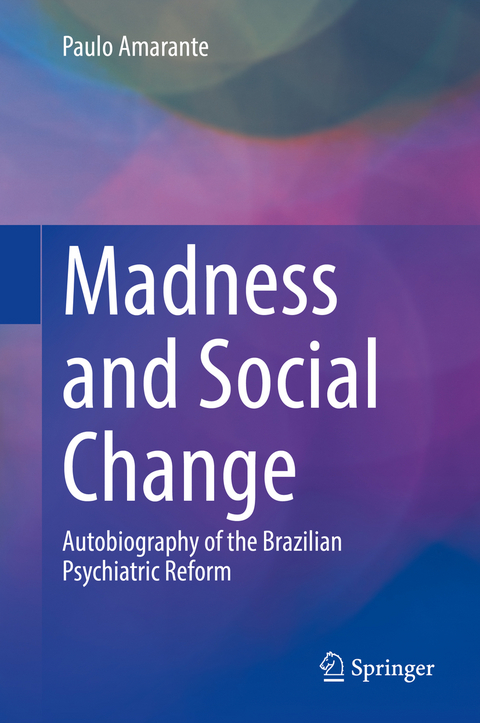
Madness and Social Change
Springer International Publishing (Verlag)
978-3-031-13374-9 (ISBN)
The Brazilian Psychiatric Reform was inspired by the psychosocial care model introduced by psychiatrist Franco Basaglia in Italy and was marked by the broad participation of social movements, such as the anti-asylum movement and other human rights movements. This process gave rise to a model of mental health care based on open-door territorial mental health services, guided by the principle of treatment in liberty, in addition to other strategies of deinstitutionalization.
More than a proposal to restructureor modernize the mental health care model, the objective of the Brazilian Psychiatric Reform was the construction of a new social place for the diverse and singular subjective experience of madness. By intending to produce new imaginaries, new social representations and new meanings for these experiences, the Brazilian Psychiatric Reform led to one of the larger experiences of deinstitutionalization in the world and to the large scale implementation of a new model of mental health care in which the old asylum-centric paradigm was replaced by a new democratic psychosocial care model.
Paulo Amarante is one of the founders of the movement that led to the Brazilian Psychiatric Reform, and is a Senior Researcher of the Laboratory of Studies and Research in Mental Health and Psychosocial Care at the Sergio Arouca National School of Public Health of the Oswaldo Cruz Foundation (LAPS/ENSP/Fiocruz), Brazil. He holds a Master's degree in Social Medicine from the Rio de Janeiro State University (UERJ), Brazil; a PhD in Public Health from the Oswaldo Cruz Foundation (Fiocruz), Brazil, with an internship at the Center for Studies and Research in Mental Health in Trieste, Italy; and has done a post-doctoral internship at the Department of Mental Health in Imola, Italy. Dr. Amarante is the President of Honor of the Brazilian Association of Mental Health (ABRASME), former Vice-President of the Brazilian Association of Collective Health (ABRASCO) and Doctor Honoris causa of the Popular University Madres de Plaza de Mayo, Argentina.
1. Introduction: Dimensions of the Psychiatric Reform as a complex social process.- 2. The "Industry of Madness" is denounced! The birth of the Brazilian Psychiatric Reform.- 3. The sociocultural dimension: Concrete experiences of production of a new social place for madness and psychological suffering.- 4. Final considerations and comments: Health and psychiatric counter-reform or dismantling the rule of law in Brazil?.
| Erscheinungsdatum | 08.09.2022 |
|---|---|
| Zusatzinfo | XVIII, 86 p. |
| Verlagsort | Cham |
| Sprache | englisch |
| Maße | 155 x 235 mm |
| Gewicht | 313 g |
| Themenwelt | Geisteswissenschaften ► Psychologie ► Klinische Psychologie |
| Medizin / Pharmazie ► Gesundheitswesen | |
| Studium ► Querschnittsbereiche ► Prävention / Gesundheitsförderung | |
| Schlagworte | Anti-Asylum Movement • Brazilian Health Reform • Brazilian Psychiatric Reform • Caps • Deinstitutionalization • Democratic Psychiatry • Human Rights • Mental Health • Psychosocial Care Centers • SUS • Unified Health System |
| ISBN-10 | 3-031-13374-9 / 3031133749 |
| ISBN-13 | 978-3-031-13374-9 / 9783031133749 |
| Zustand | Neuware |
| Haben Sie eine Frage zum Produkt? |
aus dem Bereich


